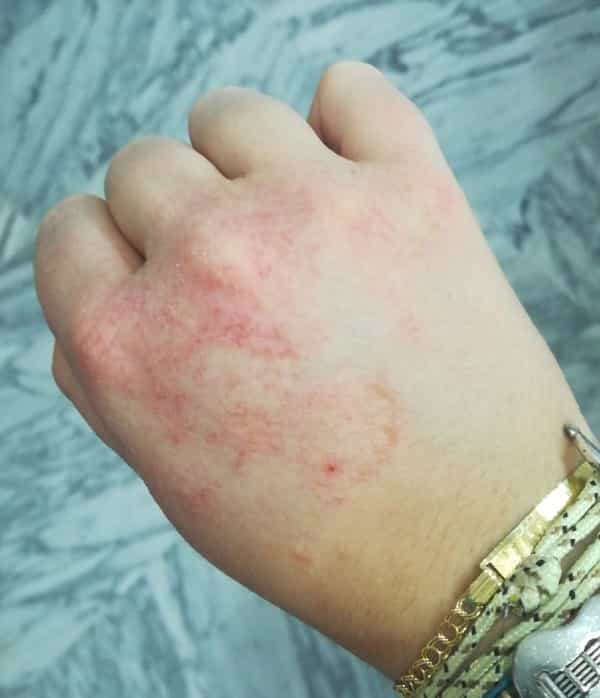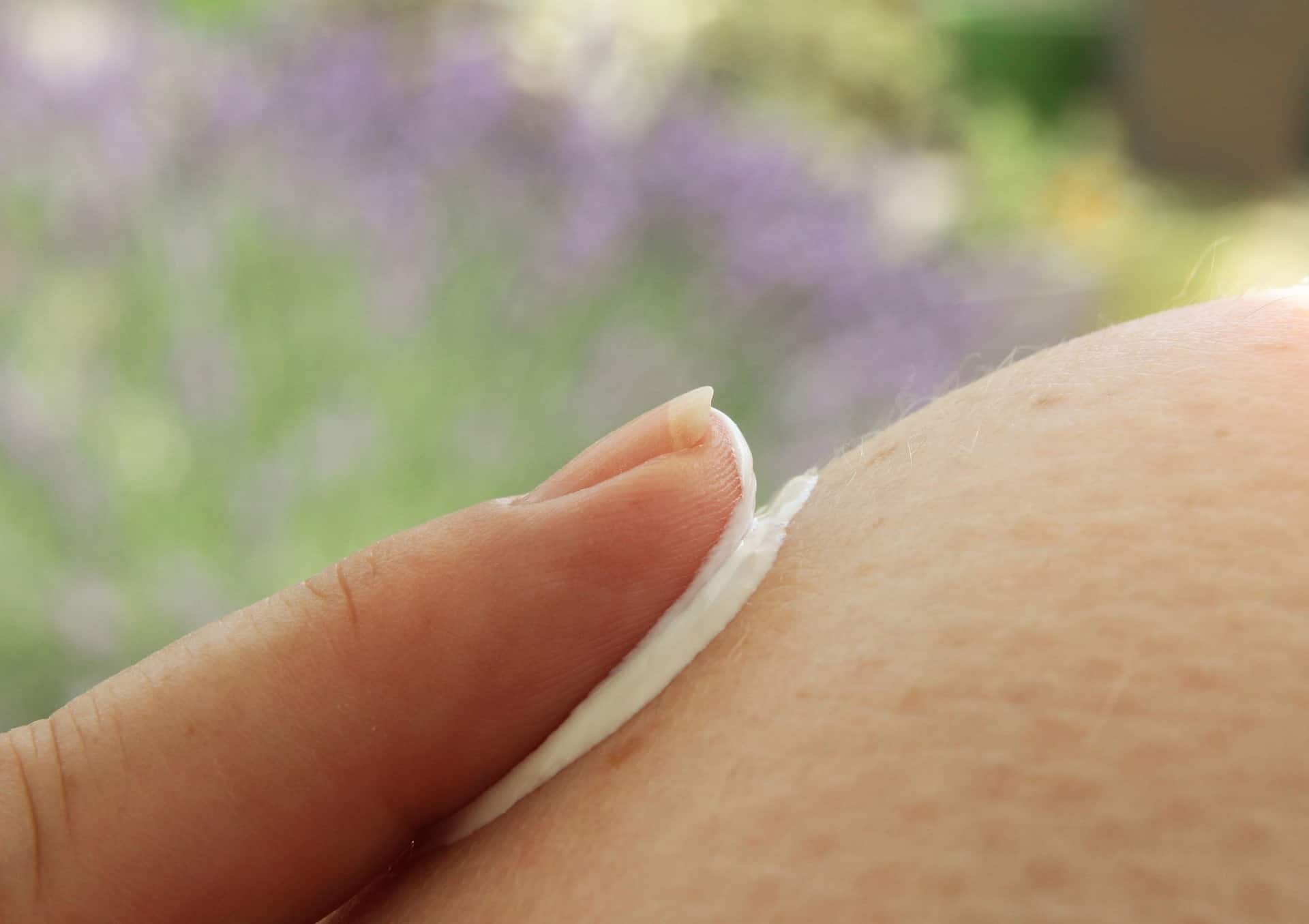Atopic dermatitis (also known as eczema) is a chronic disease in which the skin barrier functions are altered and it is characterized by inflammation, itching and dryness of the skin.
What are atopic dermatitis symptoms?

Depending on the atopic dermatitis severity the symptoms may vary.
The most common eczema symptoms are the following ones:
- Dry or very dry skin prone to irritation.
- Skin inflammation and redness.
- Itchy skin, which can sometimes be persistent and intense.
- Scaly skin.
Atopic dermatitis causes
Although today the exact cause of atopic dermatitis has not been discovered, it is known that there are certain factors such as genetics, allergies, alterations in the immune system, psychological alterations and nutritional problems that could be related to its appearance.
Who is affected by atopic dermatitis?
It can affect any age, it usually affects those whose parents are prone to this disease.
Atopic dermatitis usually develops in childhood, so some babies with a genetic predisposition may develop it during their first year of life developing dry scales that usually appear on their hair and face.
Atopic dermatitis triggers
- Climate: A cold and a dry environment can aggravate atopic dermatitis. At the same time, it is better to avoid hot water since it tends to dry the skin more than cold water.
- Scratching: By scratching the skin you are damaging the skin protective barrier and causing more inflammation followed by irritation which will lead you to continue scratching, entering in a vicious circle.
- The use of irritating and drying products: Using some cosmetics and aggressive products for skin hygiene could worsen atopic dermatitis since they could eliminate many of the substances that keep the skin hydrated. Furthermore, many types of fragrance contained in these products could contribute to worsen irritation.
- Stress: Stress affects the function of the skin barrier and could trigger an inflammatory response.
- Allergies: Some types of allergies could worsen atopic dermatitis (pollen, animals, mites…) and usually when allergies are treated, the symptoms of atopic dermatitis improve and may even disappear. Some foods could also aggravate it (milk, soy, eggs…).
- Sweating: According to studies, approximately an 80% of people suffering from atopic dermatitis experience a worsening of atopic dermatitis due to sweating, it is still unclear why sweat affects atopic dermatitis, it’s thought that it may be caused due to the alteration of skin pH, the low temperatures, the accumulation of dust in the sweat or the salts that it contains.
How to treat atopic dermatitis?
Usually, a topical routine of treatments is enough to alleviate the symptoms. We can divide the treatment into two phases: the maintenance phase and the treatment phase of an active outbreak. Depending on the severity, some treatments or others will be used, among which we can find:
Moisturizers and emollients
They are usually used in the maintenance phase of atopic dermatitis.
By moisturizing the skin a sense of improvement will be perceived and they are also able to reduce itching. Using them will reduce the chances of suffering a new outbreak and will make it appearing less frequently.
They should be applied several times a day, if they’re applied after the bath with a little wet skin, it will increase hydration a bit more.
There are several types of emollients and moisturizers (Urea, glycerin, lactic acid, paraffin…) that can improve atopic dermatitis, so you shoul try them and see which works best in your skin type.
Topical corticoids
They are usually the most prescribed treatments for moderate to severe atopic dermatitis, they act by decreasing the itching, redness, irritation and inflammation in the affected skin.
There are different types of corticoids that can be classified into several groups depending on their potency, one or the other will be prescribed depending on the severity of atopic dermatitis.
In general, they are usually used once or twice a day depending on the severity of atopic dermatitis for about a week until the outbreak ends, after the remission of the outbreak, you will continue with a maintenance routine.
Antihistaminics
They are consumed orally and help to regulate the immune response thus slowing down atopic dermatitis. They act by helping itching caused by allergies.
Due to the fact that some antihistamines cause somnolence, they can help with scratching while you sleep, although newer second generation of antihistamines do not cause or cause a little somnolence.
They are not effective in all cases, being more effective in cases of allergies. Due to the fact that they act as sedatives at bedtime you may notice an improvement.
Oral corticoids
They are rarely prescribed only for the most severe cases, they are used for a short period of time (usually a week or less). They are quite effective so they could be prescribed during a serious outbreak or at the beginning of treatment.
Tips to prevent and not worsen outbreaks of atopic dermatitis
- Follow a daily skin cleansing routine using non-aggressive, non-soap cleansers formulated for atopic skin. Avoid using hot water as it dries more skin than warm or cold water and at the same time try to reduce bath time to a shorter one (5 to 10 minutes).
- Dry the skin gently and be careful not to rub it to avoid increasing irritation.
- Moisturize your skin: Preferably use products without perfume and formulated for atopic skin, the more hydration of the skin the less tendency to suffer an outbreak.
- Avoid the use of synthetic clothing and change it for cotton or linen, avoid washing it with an aggressive detergent and if it is necessary rinse the clothes twice to remove a greater part of the detergent.
- Avoid sweating: If you have practiced sports or other activity and you have sweated, it is recommended that you continue with a routine of cleansing and hydration as soon as possible to prevent irritation.
- Control your house temperature: Keep a warm environment, ventilate the house daily and humidify the rooms.
Frequently asked questions about atopic dermatitis
Can atopic dermatitis be spread?
No, there is no way to spread this disease, although it is possible that other types of skin infections caused by atopic dermatitis be spreaded as well as they could be transmitted by a person who does not have atopic dermatitis but has an infection.
Is atopic dermatitis treatment forever?
Usually not because the symptoms can disappear and reappear spontaneously and treatments could be discontinued while you are not suffering any symptoms.


